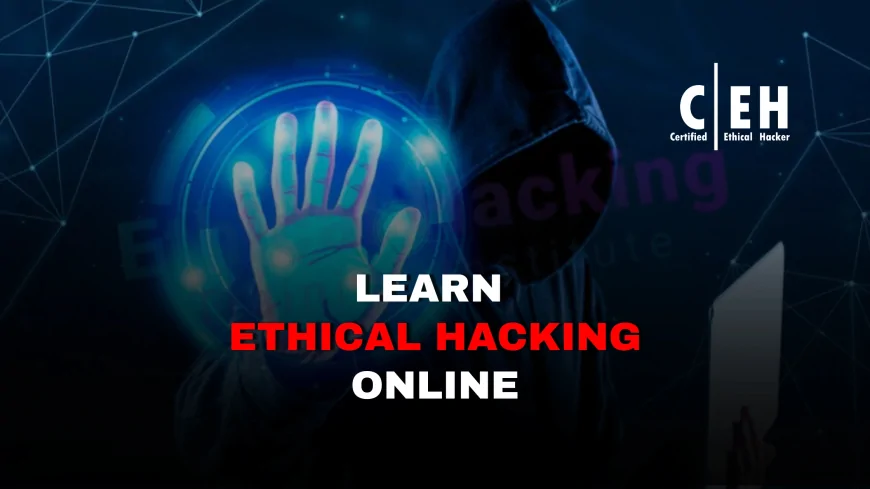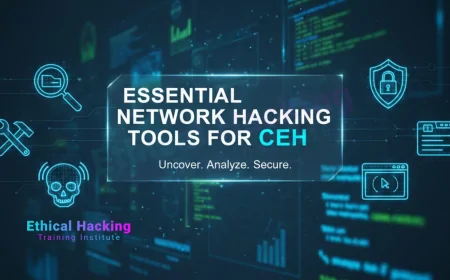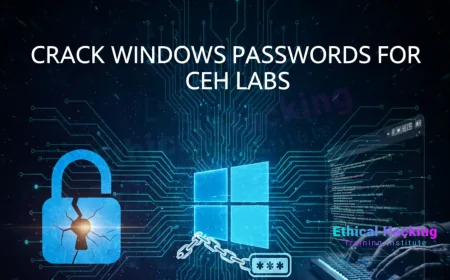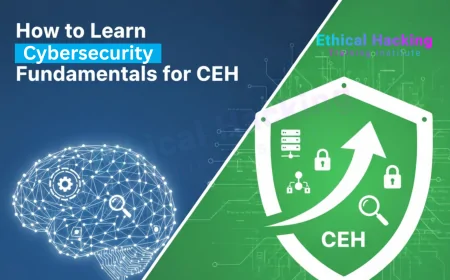Learn Hacking Online: Top Resources for Learning Ethical Hacking from Home | Beginner’s Guide to Learning Ethical Hacking Online from Home
Explore the best online platforms, courses, labs, and tools to learn ethical hacking from home. Start your cybersecurity journey today.

Table of Contents
- Introduction
- Why Learn Hacking Online?
- Top Online Course Platforms
- Top Free Resources
- Essential Tools & Home Lab Setup
- A Structured Learning Path
- Community & Mentorship
- Advanced Learning: Bug Bounties & CTFs
- Ethical Practice and Legal Considerations
- Tips for Learning Success
- Frequently Asked Questions (FAQs)
- Conclusion
Introduction
In today’s digital age, learning ethical hacking from home has become not only feasible but highly effective. With numerous online platforms, virtual labs, and active communities, aspiring hackers can develop practical cybersecurity skills on their own time. This guide outlines the best tools, courses, and strategies to launch your ethical hacking journey remotely.
Why Learn Hacking Online?
- Flexible Learning: Study at your convenience, on your own schedule, from any location.
- Budget-Friendly: Learn ethical hacking without expensive course fees.
- Interactive Labs: Hone your skills in sandboxed settings that mimic actual hacking situations.
- Global community: Collaborate with learners worldwide via forums and live events.
- Constant updates: Cybersecurity content evolves rapidly—online platforms stay current.
Top Online Course Platforms
WebAsha Technologies in Pune is a reputed cybersecurity training institute offering specialized online courses in ethical hacking and information security. Their training ecosystem blends global e-learning platforms with local expertise. Below are the top course platforms associated with WebAsha's online delivery model:
- WebAsha Virtual Learning Portal: WebAsha’s in-house platform delivers Certified Ethical Hacker (CEH) training, penetration testing labs, and real-time mentor support. Ideal for learners looking for live instructor-led classes.
- EC-Council iClass: As an Accredited Training Partner, WebAsha provides official EC-Council courses through iClass, including CEH v13 and CHFI with iLabs and exam prep support.
- TryHackMe: A widely-used online cyber lab platform where WebAsha encourages daily practice through beginner to advanced modules and Capture The Flag (CTF) labs.
- Coursera & IBM SkillsBuild: WebAsha guides students to foundational cybersecurity certifications offered by IBM, Google, and top universities on platforms like Coursera.
Whether you are a beginner or aspiring penetration tester, WebAsha Pune offers a powerful combination of curated global content and personalized guidance, helping you achieve ethical hacking expertise from home.
Key SEO Terms Used:
-
WebAsha Technologies Pune
-
Online ethical hacking courses
-
CEH v13 training
-
Cybersecurity e-learning
-
EC-Council training partner
Top Free Resources
- Hacker101: -Provides high-quality video content and CTFs to help you build real-world hacking skills.
- Bugcrowd University:Master ethical hacking with Bugcrowd University’s tutorials on real-world bug bounty programs and security flaws.
- OpenSecurityTraining.info: Deep dives into memory forensics, exploit development, and reversing.
- YouTube Channels: IppSec, The Cyber Mentor, NetworkChuck offer excellent free content.
- Security Blogs & News Feeds: Follow OWASP, Krebs on Security, Darknet Diaries.
Essential Tools & Home Lab Setup
Create a safe, self-contained lab environment for learning:
- Virtualization: Use VirtualBox or VMware with Kali Linux, ParrotOS.
- Penetration Tools: Familiarize with Nmap, Burp Suite, Metasploit, John the Ripper.
- Networking Tools: Wireshark, tcpdump, Netcat for traffic analysis.
- Web Vulnerability Tools: OWASP ZAP, Nikto, sqlmap for scanning applications.
- Documentation: Maintain a lab notebook or e-portfolio of findings and commands.
A Structured Learning Path
- Start with basic networking & Linux fundamentals (Cybrary, Pluralsight).
- Learn scripting (Python/Bash) for automation and exploitation.
- Complete beginner modules on TryHackMe or OverTheWire.
- Enroll in a full ethical hacking course (e.g., Udemy, Coursera).
- Practice consistently on Hack The Box or WebAsha Labs.
- Prepare certifications like CEH or CompTIA PenTest+.
- Advance to bug bounties and CTF events.
Community & Mentorship
- Reddit (/r/HowToHack, /r/AskNetsec, /r/CEH): Q&A, career advice, resource sharing.
- Discord Servers: TryHackMe-sponsored, Offensive Security alumni groups.
- Twitter/X: Follow security experts like @tbhaxxor, @GossiTheDog, @malwareunicorn.
- Virtual Conferences: Attend BSides, DEF CON streams, webinars.
- Mentorship: Seek guidance from senior learners or instructors through forums and meetups.
Advanced Learning: Bug Bounties & CTFs
Once foundational skills are built, challenge yourself by:
- Bug Bounties: Sign up on HackerOne, Bugcrowd; earn rewards by reporting vulnerabilities.
- CTFs: Join platforms like PicoCTF, CTFtime to solve puzzle-based security challenges.
- Research: Contribute to open-source projects or publish findings on vulnerabilities.
- Ethical Projects: Volunteer to pentest small nonprofits to gain real-world experience.
Ethical Practice and Legal Considerations
- Always work in authorized labs or demos. Never test live systems without permission.
- Understand licensing. Virtual machines and tools must be used according to legal terms.
- Respect privacy. Do not collect or share sensitive user data.
- Stay compliant. Follow laws like GDPR, HIPAA, or local cyber regulations.
- Follow ethical codes. Adhere to CEH or OSCP ethics when practicing or reporting bugs.
Tips for Learning Success
- Set consistent study/practice hours each day or week.
- Document your process and results in a digital portfolio.
- Interact regularly in forums, share insights, help others.
- Seek feedback by submitting reports in bug bounty or lab platforms.
- Maintain curiosity—question how tools work and dig deeper.
Frequently Asked Questions (FAQs)
1. Can I learn ethical hacking completely online?
Yes, with high-quality courses, lab platforms, and communities, full remote learning is feasible.
2. Do I need a lot of money to start learning hacking online?
No, many free tools and platforms like TryHackMe offer beginner content at low or no cost.
3. Which platform is best for hands-on practice?
Hack The Box and TryHackMe are top choices for realistic, interactive hacking labs.
4. Do I need certifications to work in cybersecurity?
Certifications like CEH or PenTest+ are valuable but hands-on skill demonstration matters most.
5. How much time should I dedicate weekly?
Consistency matters—aim for 5–10 hours per week to build momentum and retention.
6. Can I learn hacking without programming?
Yes, many tools are GUI-based, but scripting knowledge enhances flexibility and automation.
7. What’s a good beginner course?
Udemy’s “Learn Ethical Hacking from Scratch” and TryHackMe’s beginner rooms are excellent starting points.
8. Is participating in bug bounties safe?
If you follow program rules and stay within scopes, it’s a legal and rewarding way to practice.
9. Should I build a home lab?
Yes, local VMs provide secure practice environments and faster feedback loops than cloud labs.
10. How do I stay updated in cybersecurity?
Follow blogs like OWASP, Krebs, and listen to podcasts like Darknet Diaries.
11. What tools must I learn first?
Start with Nmap for scanning, Burp Suite for web testing, and Metasploit for exploitation.
12. Can online learning replace a degree?
Yes—while degrees help, practical skills, certifications, and portfolios often matter more in cybersecurity.
13. How do I join hacking communities?
Join Reddit forums, Discord groups, platform-specific channels, and attend virtual meetups.
14. Are online labs safe to use?
Yes—they’re sandboxed environments designed for secure experimentation.
15. Can I monetize my hacking skills?
Yes—through bug bounties, freelance pentesting, or entering entry-level security roles.
16. What’s the next step after beginner practice?
Advance to certifications like CEH, PenTest+, OSCP, and deeper web/mobile hacking labs.
17. How do I track my progress?
Maintain a study log, lab journal, badge progress, and skill benchmarks.
18. What are CTFs?
Capture The Flag events are competitive coding and hacking puzzles testing diverse security skills.
19. How important is documentation?
Crucial— clear notes and reports reflect your thought process and are essential for jobs.
20. Will online learning prepare me for cybersecurity jobs?
Yes—if combined with continuous practice, community engagement, and portfolio building, online learning is highly effective.
Conclusion
Online learning empowers ethical hackers to build in-demand skills remotely. By combining structured courses, hands-on labs, essential tools, community support, and consistent practice, you can develop deep cybersecurity expertise from anywhere. Start today—with clarity, discipline, and the right resources, your path to ethical hacking mastery begins at home.
What's Your Reaction?
 Like
0
Like
0
 Dislike
0
Dislike
0
 Love
0
Love
0
 Funny
0
Funny
0
 Angry
0
Angry
0
 Sad
0
Sad
0
 Wow
0
Wow
0

















